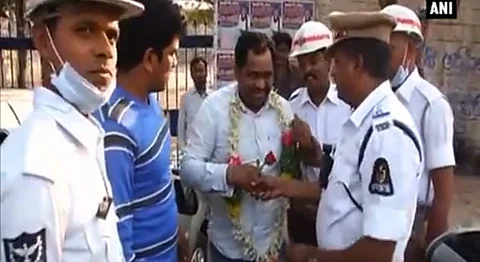
- HOMEGROWN WORLD
- #HGCREATORS
- #HGEXPLORE
- #HGVOICES
- #HGSHOP
- CAREERS
- ABOUT US
- CONTACT US

Regardless of India's diverse cultures and religions, there is one common problem that unites all of its citizens: the fact that our country doubles up as a giant toilet. There is not a single person who has spent time in India and hasn’t witnessed public urination. Several attempts have been made over the years by various authorities to deter public urination, from adding tiles of religious figures on public walls, fining people, beating drums and to even using a water cannon. However, our roadside urinators seem to continue unabashed. Thankfully, it hasn’t stopped people from making efforts to stop it.
Last week, the Uttar Pradesh State Road Transport Corporation (UPSRTC) started posting pictures of people they caught urinating in public on YouTube. An announcement was made that CCTV cameras would be installed at various bus stops that would record offenders, who would then be shamed online. But Hyderabad's traffic police have come up with an even more amusing method to stop public urination in their city, and that is by passive-aggressively felicitating the offenders by garlanding them. Speaking about the initiative, Additional Commissioner of Police (Traffic), Jitender, told ANI News that such campaigns raised public awareness about sanitation and personal hygiene. Sub-Inspector of Traffic Police, N. Rama Krishna added that the initiative was a part of the Swachh Hyderabad drive, and would help keep the city clean.
Watch the Hyderabad police in action in the video posted below, courtesy ANI News. While we may giggle and smirk at the act, there is obviously a larger issue that needs to be addressed here. While the construction of toilets was a major focus of Narendra Modi’s Swachh Bharat programme, aiming to make India ‘open-defecation free’ by 2019, and the government claiming to have constructed close to 80 lakh toilets in rural areas, there still remains a huge problem regarding a severe lack of toilets and knowledge regarding proper hygienic practices. Perhaps initiatives like these will keep the issue in the spotlight when lofty promises and elections no longer can.
